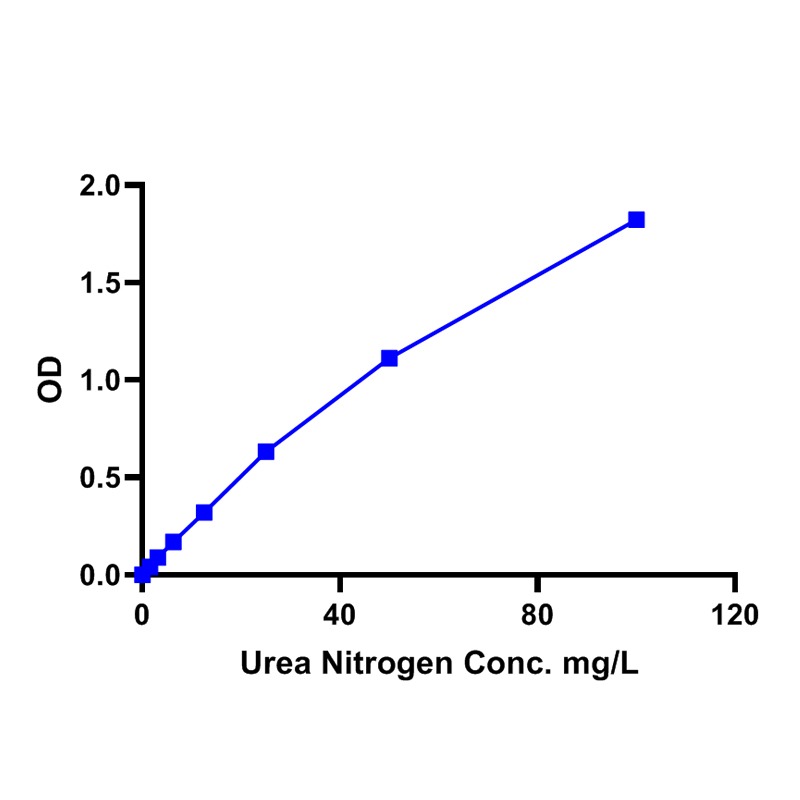
ZX-44114-96 | Blood Urea Nitrogen (BUN) Assay (Colorimetric)
Urea is a by‐product of protein metabolism in the liver, which is removed from the blood circulation by kidneys. Urea is freely filtered through the glomerulous but is reabsorbed by the renal tubules in a flow-dependent fashion. The higher the flow rate, the greater the amount of Urea Nitrogen clearance from circulation and elimination through the kidneys.
As a result, the level of circulating Blood Urea Nitrogen (BUN) serves as a primary measure of kidney function. Normal adult BUN levels should be between 7 and 21 mg per 100 mL blood (mg/dL). Elevated BUN level (≥ 50 mg/dL) is associated with acute kidney failure or injury, severe acute pancreatitis, congestive heart failure or gastrointestinal bleeding. Azotemia is a medical condition caused by the increased level of nitrogen‐containing compounds, including BUN and Creatinine, in the blood, as a result of from poor kidney function, dehydration due to alcohol abuse, or high protein diets. Lower than expected BUN levels are usually not clinically predictive, but are primarily associated with liver disease or malnutrition, including malabsorption and low protein diets. Urine and saliva are considered to be the acceptable non-invasive samples for measurement of Urea Nitrogen.
Serum creatinine is another metabolic waste product freely filtered by the glumerulous, but does not undergo tubular reabsorption. Its steady rate of elimination is frequently used to generate an index or ratio with BUN values for normalized evaluations. Our easy to use Serum creatinine assay (Cat NO. ZX-44111-96) and Urine Creatinine Assay (Cat NO. ZX-44110-96) can be used to measure creatinine level in serum and urine respectively.

Technical Support: Customer satisfaction is very important to us. Please call us at +49(0)30 81309085 or send an email to technical[at]zellx.de with your technical questions. A member of our scientific staff will be glad to assist you.